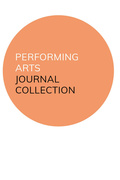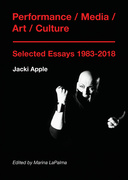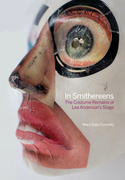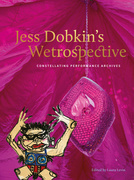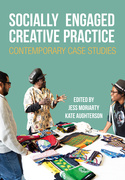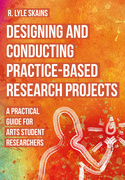Special Issue Call for Papers
‘Drama Therapy and the Climate Crisis’
Drama Therapy Review Special Issue 11:1
Submission deadline: 1 August 2024
Editors: Nisha Sajnani, Alida Gersie and Jessica Bleuer
We have all been witness to a rising number of deadly wildfires, heatwaves, floods and other indicators of a rapidly warming climate. As drama therapists, mental health providers and global citizens, we have a role to play in examining and responding to the toll that the climate crisis is taking on our physical, mental, social and ecological health and well-being. It is the biggest challenge of our time.
Like the COVID-19 pandemic, the consequences of climate change affect providers as well as participants and also impact various groups differently based on their access to suitable infrastructure including housing, cooling technologies, adequate nutrition, breathable air and their exposure to environmental racism. In 2021, the American Psychological Association released an updated report in collaboration with the non-profit EcoAmerica, highlighting the inequitable threat of the climate crisis on mental health on populations that are made more vulnerable due to intersecting forms of marginalization. In June 2022, the WHO launched a policy brief urging countries to incorporate mental health support into their climate change responses. In 2023, the Intergovernmental Panel on Climate Change released their latest report which indicated the significant health impacts, including mental health challenges, associated with increasing temperatures, trauma from extreme events, and loss of livelihoods and culture.
We recognize that our efforts may be multifold:
We need to be focused on systemic and individual climate mitigation strategies which are efforts to reduce greenhouse gas emissions. Drama therapists might support individuals and/or groups in reconnecting to a greater ecology and rehearsing climate mitigation options. Climate mitigation strategies can also be adopted at drama therapy training institutions and sites of practice (e.g. net-zero and green institutions), professional development (e.g. our conferences) and publication practices.
As care providers, we also have a role to play in identifying and adopting climate adaptation strategies, those actions that we can take individually and as a community to address the impact of an already changing climate on the conditions in which we are born, grow, live, work, care, age, play and die. Drama therapists may support individuals and groups in discovering, rehearsing, playing with, creating and connecting with others about their concerns about our changing climate.
Finally, drama therapists, like theatre-makers and artists engaged in this area (e.g Arts and Climate initiative), might contribute to climate change communication strategies on stage and on the page. This Special Issue of Drama Therapy Review is dedicated to drama therapy and the climate crisis.
Here are questions and possibilities to consider:
- How have you, as a drama therapist or participant in drama therapy, been affected by climate change?
- What approaches to drama therapy have you used in your practice to help others process eco-anxiety, grief and other feelings connected to the climate crisis?
- What have you discovered about the relationships between other approaches such as eco-therapy or land-based healing and drama therapy?
- Are there communities that you, as someone who provides or has participated in drama therapy, belong to or work with that are especially vulnerable to the impacts of climate change?
- Do you know of stories about land, environment or climate change that can help to restore our relationship to our ecosystem and inform practice?
- What are your perspectives as Indigenous drama therapists engaged with the climate crisis and/or drama therapists collaborating with Indigenous partners in your approach to the climate crisis?
- Is there someone whose leadership, at the intersections of theatre, climate and health, that you admire and would like to interview?
- Are there climate advocacy or related events that you would like to report on for our community of drama therapists?
- Have you read a book or seen a performance that illuminates important insights about climate change that would be relevant to our community of drama therapists?
- How can/do drama therapists leverage the unique skills they have to contribute in meaningful ways towards the alleviation of the effects of the climate crisis?
- What skills do drama therapists have that can be used in climate crisis leadership?
- Do you have ideas about how sustainability and the climate crisis might be addressed in drama therapy training, supervision, and professional development?
- Can you offer reflections on the function of dramatic approaches to the preparation for climate-stress and disaster in diverse treatment settings?
Guest Editors
This Special Issue builds on previous efforts in our field and is guest edited by three drama therapists committed to advancing our thinking, teaching, research and practice in this area. Nisha Sajnani, Alida Gersie and Jessica Bleuer previously co-led a workshop on drama therapy and climate response/ability for the 2023 drama therapy research symposium at New York University (NYU) which resulted in the development of a resource document and the decision to pursue this special issue.
Dr Nisha Sajnani is the director of the program in drama therapy at NYU. She curated and co-hosted the first World Health Organization (WHO) panel on the role of the arts in restoring relationships between planetary and human health. She is leading the development of a policy brief on the intersections of the arts, health, and climate through the Jameel Arts & Health Lab established in collaboration with the WHO. Dr Sajnani is currently completing the Climate Change and Health program at the Yale School of Public Health.
Dr Alida Gersie is a drama therapist, widely published author and acclaimed authority in the Arts Therapies, therapeutic storywork, bereavement counselling and popular education. Between 1982 and 2003 she designed, taught and directed postgraduate arts-therapies programs at universities in the UK and Europe. She is an engaged environmentalist and has, since the 1970s, offered consultancy to many organizations on how best to generate and support people’s enduring commitment to pro-environmental behaviour.
Jessica Bleuer Ph.D.(c) is the director of the Ecological crisis and response/ability working group, with the Centre for Interdisciplinary Studies in Society and Culture at Concordia University. Jessica also teaches drama therapists-in-training how to address climate related anxiety and grief at Concordia University, bringing the topic into all of her classes.
We invite your original research, reports, interviews, poetry, photo-essays, clinical commentaries, as well as book and performance reviews for our next Special Issue focused on drama therapy and the climate crisis.
Submission deadline: 1 August 2024
Submit to: dtr@intellectbooks.com
Please read our submission guidelines.
General Call for Papers
The submission deadline for our general issue is 1 February every year. DTR welcomes contributions from a wide range of scholarly work including, but not limited to:
- Scholarly articles – quantitative, qualitative, arts-based, and mix-methods research as well as critical and conceptual essays
- Interviews
- Clinical commentaries
- Performance and book reviews
- Artistic content – photo essays, performance texts, digital art, and recordings of performances with corresponding analysis
- Supplementary digital content – web-based projects, computer graphics, animations, visualizations, games, archives, lexicons, annotations, supplemental video, audio and images.
To submit work for consideration please download our submission guidelines and email dtr@intellectbooks.com. Journal contributors will receive a free PDF copy of their final work upon publication. Print copies of the journal may also be purchased by contributors at half price.





